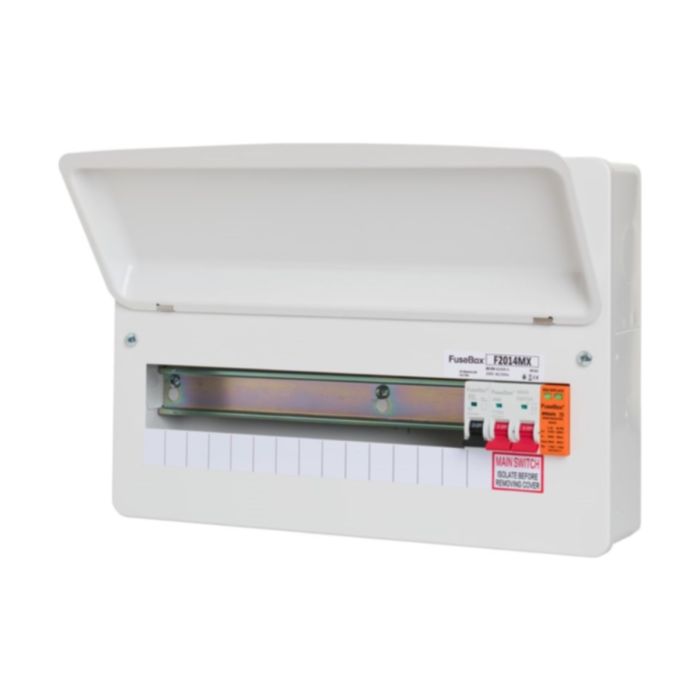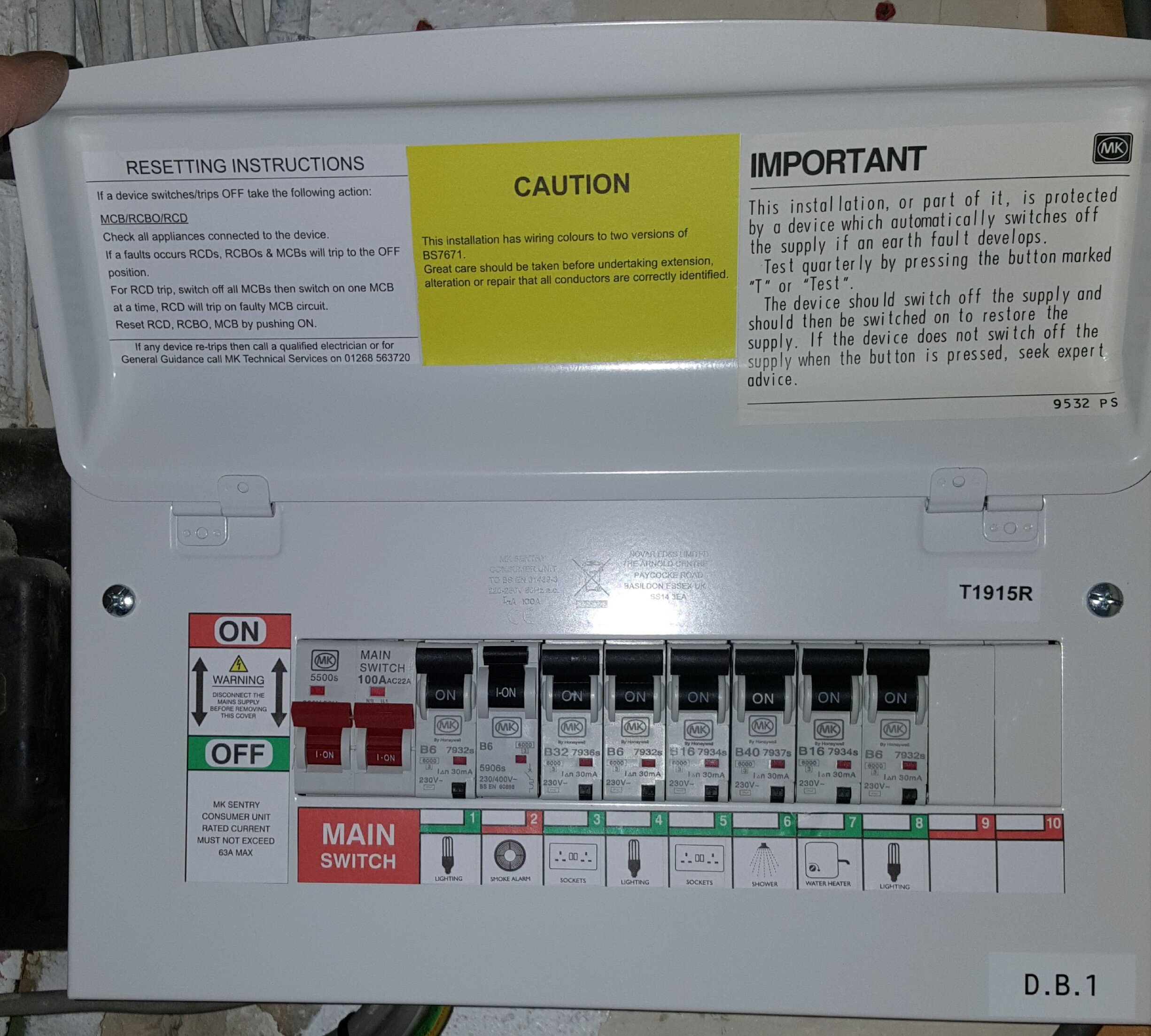The Function of Consumer Units in Efficient Power Administration Equipment
Consumer devices are integral to efficient power administration systems, offering as the primary circulation factors for electrical power within structures. The arrival of smart innovations has actually better boosted their capability, enabling for real-time information surveillance and nuanced energy usage analysis.
Comprehending Customer Devices

Understanding the role of consumer systems begins with acknowledging their necessary feature in protecting electrical systems. By separating faults within certain circuits, customer systems avoid extensive blackouts and potential fire dangers. This seclusion is achieved through using circuit breakers that trip or merges that blow when a fault is spotted, therefore cutting off the electrical circulation to the influenced circuit.
Furthermore, customer systems facilitate the orderly distribution of power, enhancing the performance of energy usage. They enable the systematic administration of electrical lots, which can be specifically important in commercial and commercial settings where demand can rise and fall substantially. Effectively kept customer devices add to the long life of electrical systems and help in lessening downtime triggered by electrical failures, eventually supporting the smooth operation of energy-dependent facilities.
Smart Technologies Combination

A crucial advantage of wise customer systems is their capacity to take advantage of advanced algorithms and artificial intelligence for predictive analytics. This enables preemptive modifications based upon usage patterns, climate projections, and other variables, significantly enhancing total performance. Furthermore, wise customer devices assist in need response programs, where power use can be dynamically adjusted during optimal durations to support the grid and minimize prices.
The assimilation of renewable energy sources, such as solar and wind, is likewise streamlined through wise consumer systems. By smartly taking care of the intermittency of these sources, these devices make sure a reliable and well balanced power supply. Furthermore, wise consumer systems improve user engagement by offering detailed understandings and remote capacities through mobile applications, cultivating a more positive strategy to power preservation and sustainability.
Surveillance Energy Intake
Building on the abilities of smart innovations assimilation, keeping an eye on energy intake becomes a critical emphasis within power management systems. By leveraging advanced metering framework (AMI), real-time information on energy use can be accumulated at granular levels, providing beneficial understandings right into intake patterns and peak demand periods.
Smart meters and Internet of Points (IoT) gadgets play a pivotal duty in this surveillance procedure. These tools can track power usage in real-time, sending data to central systems for evaluation.
The assimilation of these innovations not just equips consumers with in-depth info about their power use however likewise sustains energy companies in managing tons circulation extra properly. Eventually, constant and specific surveillance is vital for accomplishing power efficiency, cost financial savings, and sustainability objectives within power administration systems.
Optimizing Home Appliance Use

One effective technique includes recognizing height and off-peak hours to shift energy-intensive activities, such as washing or dishwashing, to times when energy demand is reduced. This not just lessens strain on the grid however additionally takes advantage of lower power tariffs. In addition, integrating device understanding formulas enables predictive maintenance, guaranteeing home appliances run at optimum efficiency and lengthening see here their lifespan.
Power management systems can likewise incorporate user-specific choices and behaviors to customize device usage schedules. For instance, smart lights systems can change brightness based upon occupancy and natural light schedule, while HVAC systems can preserve convenience degrees without too much energy use.
Encouraging Sustainability
Promoting sustainability within energy management systems involves not just boosting performance but also cultivating eco liable methods. Customer devices are essential to this procedure, as they supply real-time information and control systems that make it possible for users to check and lower their energy intake. By leveraging innovative innovations, customer devices can determine energy-saving possibilities and promote the integration of sustainable energy resources like solar and wind power.
One essential aspect of promoting sustainability is enlightening consumers on the advantages of responsible energy use. Via in-depth understandings given by consumer systems, users can make educated choices that reduce their carbon impact. These units can suggest ideal times for running high-energy devices based on grid demand and eco-friendly energy schedule, thus lowering reliance on fossil gas.
In addition, consumer units support the adoption of wise grid innovations, which improve the overall efficiency and reliability of energy distribution. By enabling two-way communication between customers and utility service providers, these systems can dynamically get used to power demands, minimizing waste and promoting using lasting energy practices.
Final Thought
Consumer systems, as indispensable components of power management systems, considerably improve electric safety and efficiency within buildings via circuit defense and wise modern technology integration. Furthermore, the consolidation of sustainable power resources promotes lasting practices, adding to lowered general energy usage and lower carbon impacts.
Advances in smart technologies have revolutionized the capabilities of power management systems, particularly with the integration of wise customer systems.Building on the capabilities of clever modern technologies integration, keeping an eye on power usage ends up being an important emphasis within energy monitoring systems.Efficient device use optimization is a crucial part of power management systems, intending to boost efficiency and lower unnecessary power intake.Consumer units, as important components of energy management Bonuses systems, considerably enhance electric safety learn the facts here now and security and performance within buildings through circuit protection and clever technology assimilation. Furthermore, the consolidation of sustainable power sources advertises sustainable practices, adding to lowered total energy intake and lower carbon impacts.